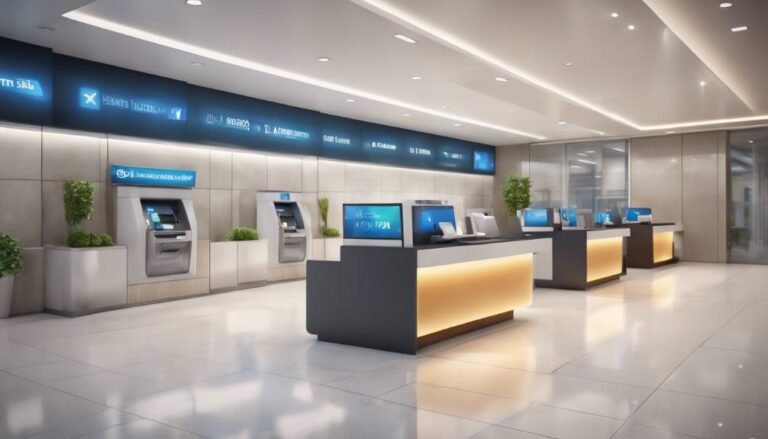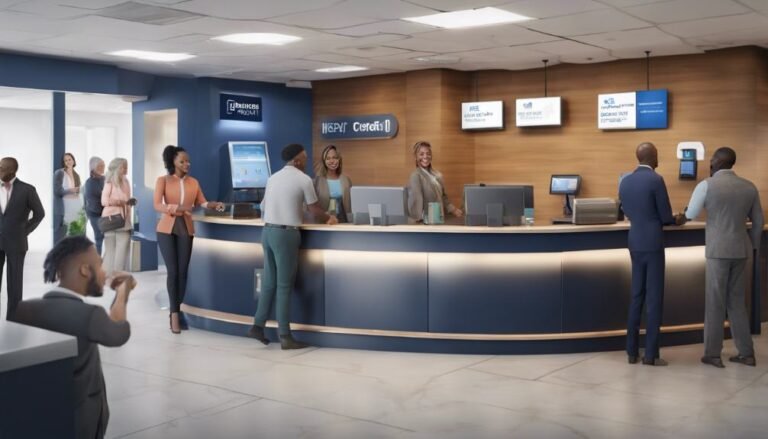Credit One Bank credit card alternatives: 5 EIN-Only Picks
Platinum Visa® looks helpful until you crunch the numbers: a $75 first-year fee (then $99) and limits that can start at just $300—all while every charge hits your personal credit file. If you’re trying to grow a company, that exposure is costly.
EIN-only business cards flip the script. They rely on your company’s revenue—think of the FairFigure Capital Card, which bases approval solely on cash flow and skips any personal guarantee—and let you:
- Build business credit instead of personal debt
- Shield your personal score from utilization spikes
- Avoid the junk fees common on subprime consumer cards
Below, you’ll find five cards that meet those standards—including the startup-friendly FairFigure Capital Card—so you can choose financing that truly supports your business.
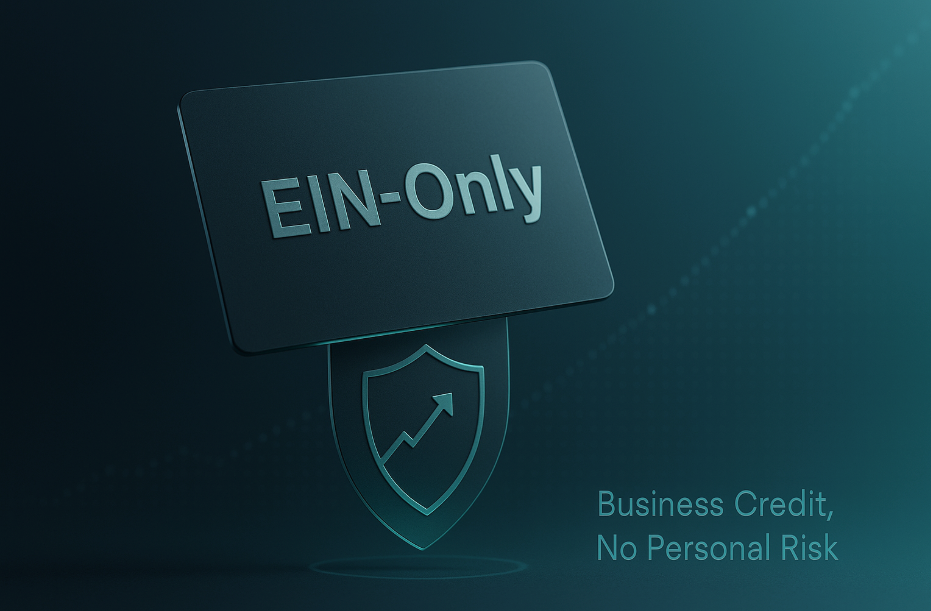
At-a-glance: five Credit One Bank credit card alternatives
Before we review each card in detail, here’s a quick snapshot of how the five EIN-only options compare.
| Card | Personal guarantee | Key requirement | Annual fee | Stand-out perk |
| FairFigure Capital Card | None | Link business bank; startup-friendly | $0 | Flexible repayment that reports to business bureaus |
| Ramp Visa Corporate Card | None | About $25,000 in bank balance or higher revenue NerdWallet review | $0 | 1.5 percent cash back plus free expense automation |
| Brex 30 Card | None | $50,000 bank balance or venture backing (Brex requirements) | $0 | Up to 7× points on rideshare and rich partner perks |
| BILL Divvy Corporate Card | None (soft pull) | Link revenue or pre-fund about $20,000 balance (NerdWallet) | $0 | Rewards grow as you pay faster, up to 7× on dining |
| Sam’s Club Business Mastercard | Possible to skip | Strong PAYDEX or established business credit (WalletHub) | $0* | 5 percent cash back on gas nationwide |
The common thread: each card skips a personal guarantee, charges no annual fee, and delivers benefits Credit One doesn’t match.
FairFigure Capital Card: startup-friendly, truly EIN-only
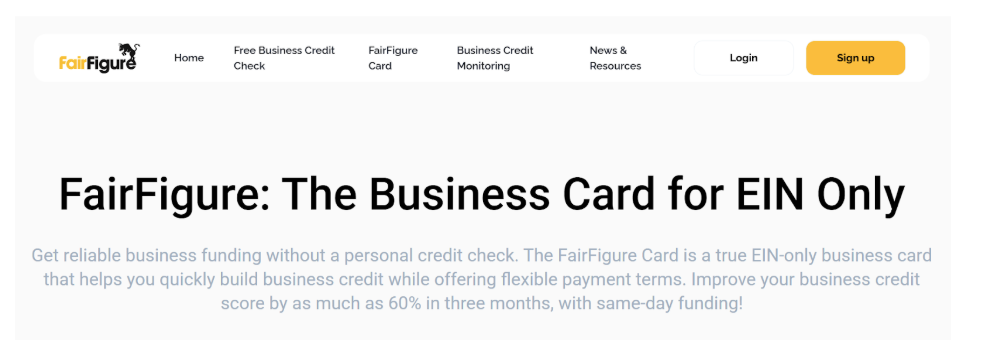
FairFigure describes its Capital Card as “training wheels” for business credit.This EIN-only business card reviews only business cash flow, skips a personal guarantee, and lets you choose four- or eight-week payoff terms that match your revenue cycle. Apply with an EIN and a quick bank-account link; no hard pull touches your personal score.
According to the business-credit site eCredable, a company needs at least three months in business and about $2,500 in monthly revenue to qualify. A $30 monthly membership reports as a vendor tradeline, while the card itself has no annual or foreign transaction fee. Limits grow with deposits, and every on-time payment reaches Dun & Bradstreet, Equifax Commercial, Creditsafe, and the SBFE.
This line revolves instead of resetting each month, so you can carry a balance across the chosen term. FairFigure lists a 12.99%–29.99% APR, yet interest never accrues if you clear the balance within that window, according to Brex’s spend-trends data.
The trade-off for skipping a personal guarantee is mild: initial limits often hover near $10,000, and the membership fee only makes sense if you use the credit or its monitoring tools. For founders locked out of bank financing or keen to protect personal assets, FairFigure delivers quick access, flexible terms, and true EIN-only underwriting that can grow into cheaper funding long before a $300 personal card will.
Ramp Visa Corporate Card: high limits, zero fees, real cash back
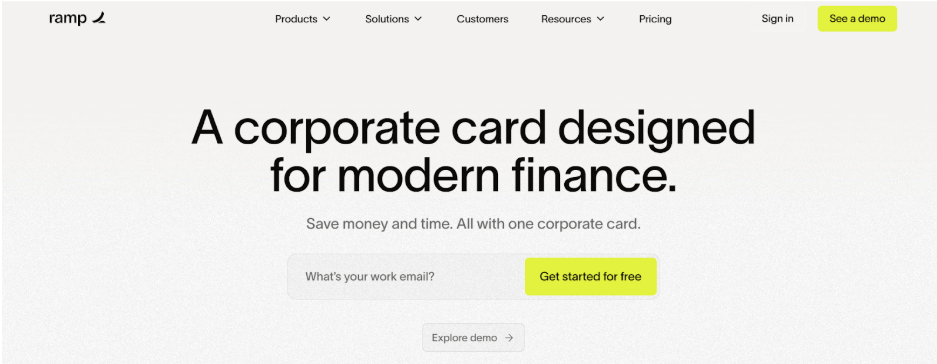
Ramp measures credit by your company’s bank balance and burn rate, not your personal score. Link a U.S. business account with at least $25,000 in cash and most applicants receive a decision within 48 hours, all with no personal guarantee or credit check, according to NerdWallet.
New accounts often secure limits up to 30× higher than a typical small-business card, and every dollar earns a flat 1.5 percent cash back that posts automatically each month. Because Ramp is a charge card, the balance clears when the statement closes, giving you up to 30 days of float with no interest and no fees.
The software is the bigger draw. You can issue unlimited virtual or physical cards, capture receipts by text or email, and sync expenses with QuickBooks, Xero, or NetSuite—features typical of many modern corporate card programs. AI-driven alerts flag idle SaaS seats and duplicate subscriptions before they drain cash, a service Credit One does not provide.
There are limits. Ramp serves corporations, LLCs, or LPs; sole proprietors need a different option. The $25,000 cash requirement, although lower than the $75,000 floor in place before March 2024, can still challenge early-stage startups, notes CreditCards.com. If your business keeps a solid cushion and you can repay monthly, Ramp delivers generous limits, simple rewards, and no personal risk. Credit One cannot match that combination.
Brex 30 Card: big limits and bigger rewards for venture-backed teams
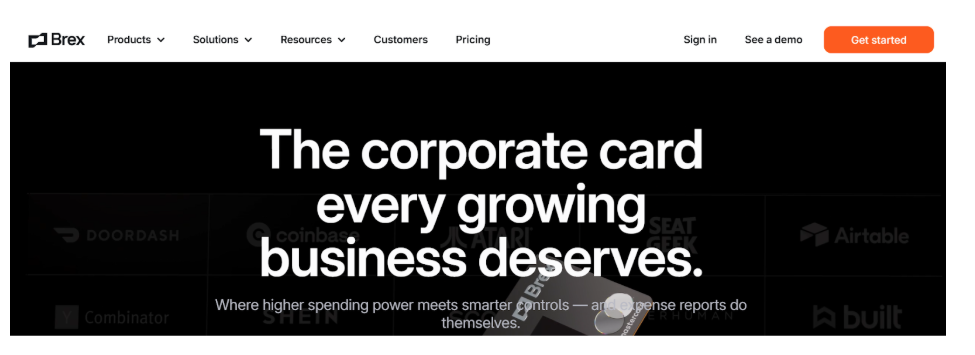
Brex built its name on a simple rule: if investors back your runway, Brex will back your card. The company still follows that approach, but after a 2022 shift it now serves a narrower segment: businesses with at least $50,000 in the bank or professional funding from a VC, accelerator, or angel group, reports TechCrunch.
For firms that qualify, the perks are substantial. The Brex 30 Card is a charge card that clears the balance each month and awards airline-style points: 7× on rideshare, 4× on travel booked through Brex, 3× at restaurants, 2× on recurring software, and 1× on other spend. Brex estimates a startup that charges $100,000 per month could collect about 2.8 million points annually, worth roughly $28,000 in travel through its portal.
Credit limits rise with cash on hand; many SaaS founders report six-figure lines on day one. Cardholders also receive more than $180,000 in partner discounts from AWS, Slack, QuickBooks, and other vendors, according to Brex. There is no annual fee, no foreign transaction fee, and no impact on personal credit.
Exclusivity is the trade-off. Brick-and-mortar shops or bootstrapped e-commerce brands seldom clear Brex’s bar; the firm closed tens of thousands of such accounts when it refocused on venture-backed clients in mid-2022, as covered by CNBC. If that describes your business, consider Divvy or FairFigure instead. For funded startups that meet the criteria, Brex offers some of the richest no-PG rewards available.
BILL Divvy corporate card: flexible rewards for growing SMBs

If Ramp or Brex feel out of reach, Divvy—now branded BILL Spend & Expense—offers an easier path. The card skips a personal guarantee, relying on a soft identity check and a live look at your business bank account. Many owners report approvals with five-figure annual revenue and as little as $5,000 in the account, although the limit you receive depends on cash flow and history, according to NerdWallet.
Divvy’s main draw is its sliding rewards table. Choose weekly autopay and earn 7× points at restaurants, 5× at hotels, 2× on recurring software, and 1.5× on other spend. Move to monthly autopay and those rates drop to 2×, 2×, 1.5×, and 1× respectively, notes Bankrate. There is no annual fee or foreign transaction fee, and points can offset travel, statement credits, or cash back.
Beyond credit, Divvy functions as an expense-management platform. You can issue unlimited virtual cards, set team budgets in advance, and export transactions directly to QuickBooks or Xero. This combination has attracted more than 30,000 small businesses since BILL’s 2023 acquisition, though some users have noted slower support during the transition.
Divvy remains a charge card, so your balance clears on a set schedule—weekly, semi-monthly, or monthly, depending on the plan. If your cash cycle supports prompt payoff, the card can convert routine business spend into valuable rewards while keeping your personal credit untouched.
Sam’s Club Business Mastercard: fuel savings with an EIN-only approval path
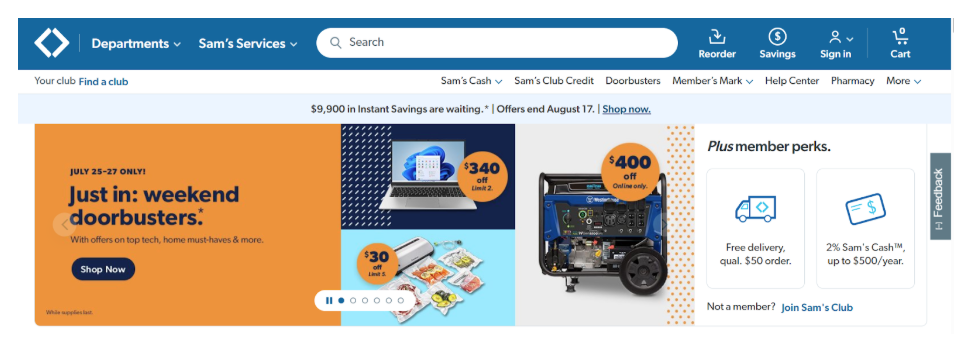
Fintech cards are not the only way to skip a personal guarantee. The Sam’s Club Business Mastercard, issued by Synchrony, is one of the few traditional credit cards that can approve strictly under an EIN when the business shows a strong credit file. WalletHub reports that applicants may substitute an EIN for an SSN and request no personal guarantee during the in-store application process.
The rewards are competitive. Cardholders earn 5 percent cash back on gas worldwide (up to $6,000 per year), 3 percent on dining and travel, and 1 percent on other spend—all with no annual fee beyond the $45–$100 Sam’s Club membership many businesses already carry, according to Forbes Advisor. Cashback posts as Sam’s Cash, which you can redeem for statement credit or merchandise, trimming everyday operating costs.
Approval without a guarantee is not automatic. Anecdotal data suggest Synchrony prefers a PAYDEX of 80 or higher and at least two established trade lines before relying solely on the business. The bank may still run a soft pull on the owner’s personal credit as a fraud check, but that inquiry does not affect consumer scores. Use the card consistently—fuel purchases make this simple—and pay in full, and Synchrony often raises limits promptly while reporting positive history to Dun & Bradstreet and Equifax Commercial.
For companies with significant fuel expenses or regular wholesale runs, the Sam’s Club Mastercard combines mainstream acceptance, solid rewards, and clear separation between personal and business credit, provided the firm meets EIN-only criteria.
Mini-FAQ: your top EIN-only questions, answered
Can I qualify if my personal credit is wrecked?
Often, yes. True EIN-only issuers such as FairFigure ignore your FICO, while others like Divvy and Ramp run only a soft personal-credit check that leaves your score untouched. Approval rests on the health of your business bank account, not past mistakes.
Will these cards help or hurt my personal credit?
They sit completely off your consumer reports as long as you apply without a personal guarantee. On-time payments build your company’s scores with Dun & Bradstreet or Experian Business but never raise your personal utilization ratio.
What’s the catch with “no personal guarantee”?
Because the lender cannot pursue you personally, it limits risk in other ways: smaller starting limits, faster payoff cycles, or minimum cash requirements. You trade a signature for tighter guardrails, a swap many owners prefer.
How common are personal guarantees?
They remain the norm. NerdWallet notes that most small-business credit cards still require one, reserving EIN-only approval for a small set of corporate and retail programs.
How do I build enough business credit to qualify?
Form your LLC, open a business bank account, and pay a few net-30 vendor invoices early. Industry surveys show 83 percent of small businesses already use at least one business credit card once they reach this stage, according to Expensify’s data. Within three to six months many firms can show a PAYDEX of 80 and move up to cards like Sam’s Club or Divvy.
Should I close my Credit One card after I get an EIN-only account?
Use the new card for business expenses right away, but keep Credit One open until you have another personal card with no annual fee. Closing an old line trims available credit and can lower your score, so time the exit for after your next fee anniversary.
Conclusion
Credit One’s subprime terms expose your personal credit and limit your growth. By choosing an EIN-only alternative—whether a fintech charge card like Ramp, a startup-focused option such as FairFigure, or a retail program like Sam’s Club—you can build business credit, avoid junk fees, and protect your personal finances while your company scales.


